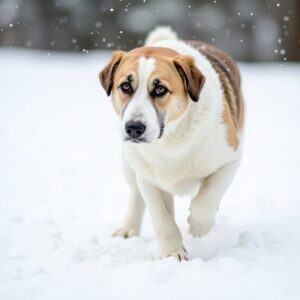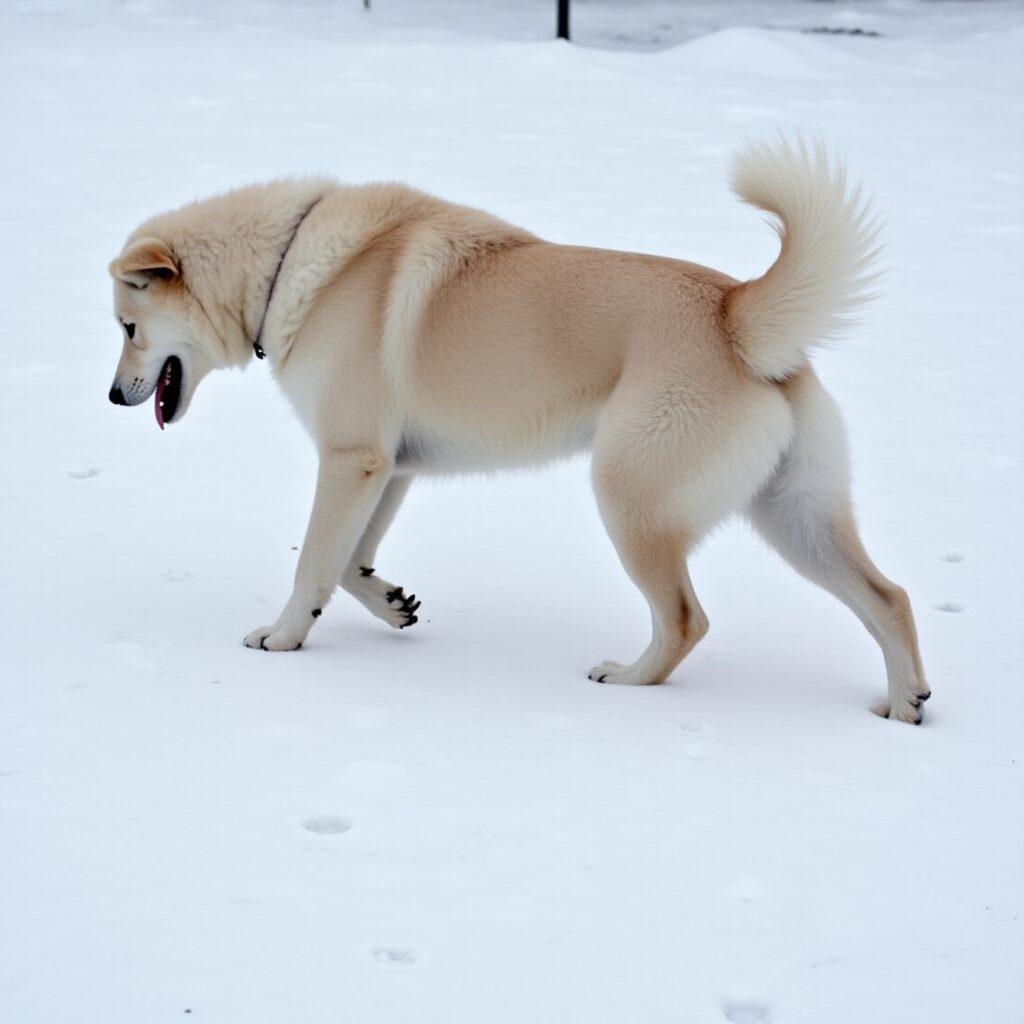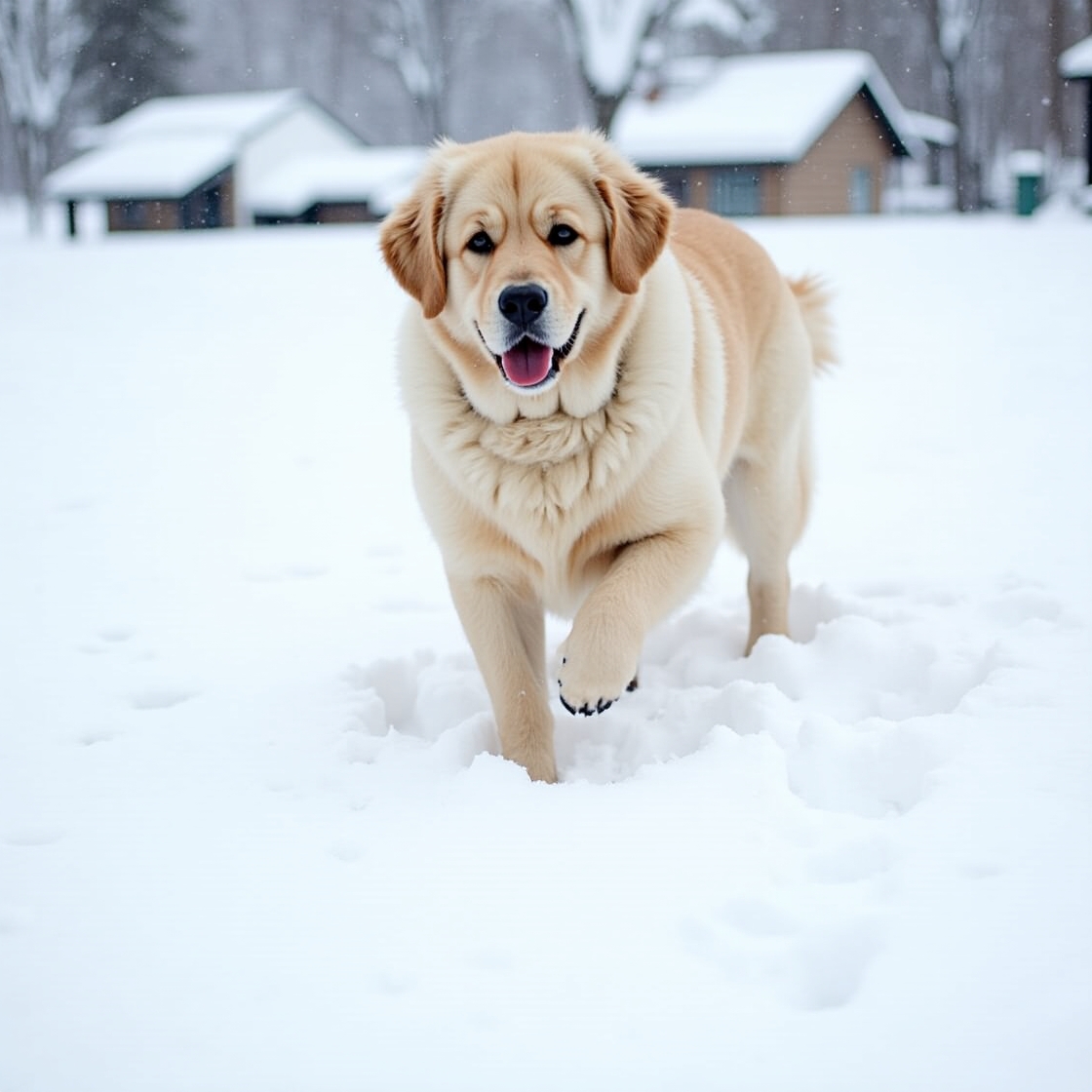The Science, Behavior, and Tips for Snowy Walks
When winter blankets the ground in snow, many dog owners notice how quietly their furry friends move across the frozen terrain. Whether it’s a fluffy Siberian Husky or a tiny Chihuahua, dogs seem to tread softly on snow. But why is that? Let’s dive into the fascinating reasons behind this quiet movement and how you can ensure your dog stays safe and comfortable during snowy adventures.
Why Are Dogs Quiet on Snow?

Dogs’ quiet movement on snow is a combination of their anatomy, behavior, and the unique properties of snow itself. Here’s what makes their steps so silent:
1. Snow Absorbs Sound
Snow is naturally soft and fluffy, especially when fresh. Its structure absorbs sound, muffling the noise of your dog’s paws. This is why footsteps (both human and canine) are quieter on fresh snow compared to hard surfaces like pavement.
2. Paw Pads Are Designed for Silence
Dogs’ paw pads are thick, flexible, and lightly cushioned, which helps them tread softly. Unlike heavy boots, their paws distribute weight evenly, minimizing noise and preventing them from sinking too deeply into the snow.
3. Careful Movement
Dogs instinctively adjust their gait when walking on snow. They take slower, more deliberate steps to maintain balance, which reduces noise. Their claws also provide subtle traction, helping them move smoothly and quietly.
Snow Absorbs Sound
Snow is soft and fluffy, which makes it absorb sound. This means that when your dog walks on fresh snow, the sound of their paws is quieter because the snow soaks up the noise.
How Snow Type Affects Noise

Not all snow is the same, and the type of snow can influence how quietly your dog moves:
Icy Snow: Snow with a frozen crust can amplify noise as paws break through the icy layer. It’s also more slippery, making quiet movement harder.
Fresh, Powdery Snow: Light and airy, this snow absorbs sound the best, making your dog’s steps almost silent.
Packed Snow: Harder and denser, packed snow may produce a faint crunching sound as your dog’s claws scratch the surface.
Do Breed and Size Matter?
Yes! A dog’s breed and size play a role in how quietly they move on snow:
- Smaller Dogs: Breeds like Chihuahuas or Dachshunds are lighter and tend to tread more quietly.
- Larger Dogs: Bigger breeds like German Shepherds may make more noise due to their weight.
- Snow-Adapted Breeds: Huskies, Malamutes, and Samoyeds have fur-covered paws and strong legs, making them naturally graceful and quiet in snowy conditions.
Tips for Quiet and Comfortable Snow Walks
To help your dog move quietly and safely on snow, follow these tips:
Keep Walks Short in Extreme Cold: Prolonged exposure to freezing temperatures can be harmful. Limit walk times and watch for signs of discomfort.
Protect Their Paws: Use dog booties or apply paw balm to prevent ice buildup and protect against cuts or frostbite.
Trim Fur Between Toes: Long fur can trap snow and ice, causing discomfort. Keep it trimmed for better mobility.
Monitor Snow Conditions: Be aware of the type of snow your dog is walking on. Fresh snow is quieter, while icy snow can be slippery and noisy.
Dress for the Weather: Consider a winter jacket or harness for smaller or short-haired breeds to keep them warm.
Why Quiet Movement Matters
A dog’s ability to move quietly on snow isn’t just a neat trick—it’s a survival trait. In the wild, this skill helps canines hunt prey or avoid predators. For domestic dogs, it’s more about comfort and maintaining their natural agility in winter conditions. Plus, quiet movement helps minimize disturbances to wildlife during snowy hikes.
fAQ
1. Do all dogs walk quietly on snow?
Most dogs can move quietly on snow, but factors like size, breed, and snow type influence how silent their steps are. Smaller dogs and snow-adapted breeds tend to be quieter.
2. Why do dogs sometimes make noise on snow?
Noise can occur on icy or packed snow, where claws scratch the surface or weight causes the snow to crunch.
3. Should I protect my dog’s paws in snow?
Yes! Booties or paw balm can prevent snow buildup, ice cuts, and frostbite, ensuring your dog stays comfortable.
4. Do dogs enjoy walking on snow?
Many dogs love the sensory experience of snow, but preferences vary. Always monitor your dog for signs of discomfort or cold.
5. What if my dog slips on icy snow?
If your dog slips, check for injuries and guide them to a safer area. Consider using non-slip booties for better traction.
Conclusion
Dogs’ quiet movement on snow is a fascinating blend of nature and adaptation. From their padded paws to their careful steps, they’re built to navigate snowy terrain with ease. By understanding the science behind their silent strides and taking a few simple precautions, you can ensure your dog enjoys safe, comfortable, and peaceful winter walks.

